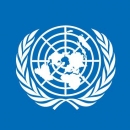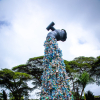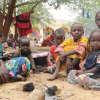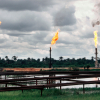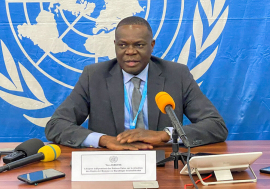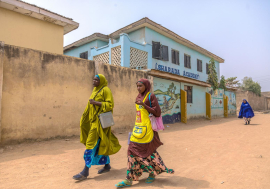Powered by environmental finance, Africa’s largest gene bank helps to bolster biodiversity, food security
Powered by environmental finance, Africa’s largest gene bank helps to bolster biodiversity, food security
On the occasion of the Third International Conference on Financing for Development, United Nations Development Programme (UNDP) Administrator Helen Clark and the Global Environment Facility’s (GEF) Chief Executive Officer Naoko Ishii visited today Africa’s largest gene bank, an initiative that links scientists with small-scale farmers to collectively revive and conserve traditional, indigenous seeds in the face of drought, climate change, and progressive erosion of traditional agricultural varieties that will prove vital for the future of food security in Africa.
The gene bank is hosted by the Ethiopia Biodiversity Institute, and is among initiatives supported by UNDP and the GEF worldwide that exemplify how environmental finance can play a critical role in advancing sustainable development.
“We need to make smart decisions and leverage environmental finance to catalyse and deliver multiple economic, social and environmental benefits. Investing in the wellbeing of our planet and halting climate change should not be seen as a ‘cost’, but as a worthwhile investment," Helen Clark said during the visit.
The gene bank is a repository where biological material is collected, stored, catalogued and made available for redistribution. It also contributes to food security by maintaining a diverse gene pool in the form of crop varieties and by distributing seeds to communities highly affected by climate change, droughts and connected chronic food shortages.
“The needs for development will always outstrip the resources available, so we have to find the opportunities to catalyze change and snowball into impacts far in the future,” Dr Naoko Ishii said. “When we don’t protect our natural capital we often are eating into the resources of the poor and vulnerable in society.”
Over the years, the gene bank initiative has established 12 on-farm in-situ conservation sites for farmers, conserved more than 300 indigenous farmer varieties of seeds, and established 8 community gene banks and allied conservation associations. The programme has also documented the indigenous knowledge of farmers on the methods of selection, cultivation, and use of their crops, including women’s knowledge in seed preservation, exchange and movement.
The post-2015 development agenda is about people and the planet. Ensuring that ecosystems are well-managed and healthy determine the future resilience of economies and societies. To take this new agenda forward, including by adapting to and mitigating climate change, Ethiopia and other developing countries will need to continue accessing adequate, stable, and affordable finance.

